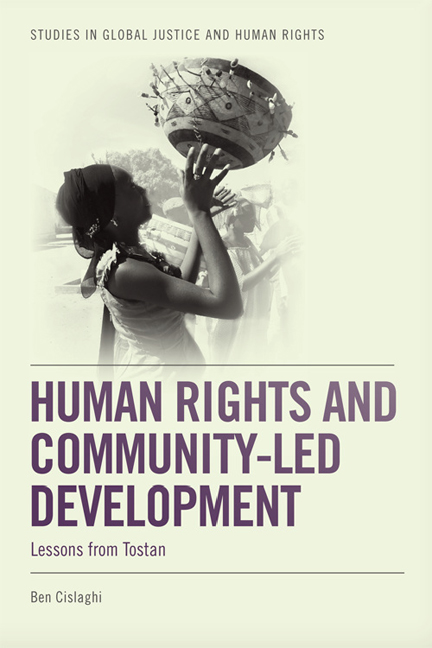4 - Galle Toubaaco before the Programme
Published online by Cambridge University Press: 29 April 2021
Summary
INTRODUCTION
By drawing on the empirical data, this chapter offers an understanding of how community members in Galle Toubaaco described their community before the HRE programme. The first part of the chapter presents the village of Galle Toubaaco, exploring the structural characteristics that help make sense of members’ relations that will be examined later.
In the second part I discuss gender roles and relations, decisionmaking processes and social practices that are inconsistent with human rights in place in the rural community. Gender norms in Galle Toubaaco granted men authority over women both in the family and in the village. As I looked in the data to understand the reasons for this gendered unequal distribution of power, two sets of resources seemed to be particularly important. I examine those two ‘resource sets’ (that I call labour and marriage resources) and their impact on women's human rights and human development. I then look at the political structure of Galle Toubaaco and the decision-making processes. I examine the relations of power that tied community members, and suggest that ‘invisible’ power dynamics (hegemonic ideology) shaped women's access to visible and hidden forms of power; that is, that gender roles and relations impacted on women's capability to access decision-making and agenda-setting processes. I found that unequal capabilities to participate in the decision-making process (with women and young members being excluded from it) contributed to fostering (and reproducing) an uneven social and political status quo.
The last section analyses two human rights-inconsistent social practices in place in the community: CFM and child labour. I do so to explore whether participants came to understand those practices as harmful during or after the HRE programme.
GALLE TOUBAACO
The village of Galle Toubaaco is located in the recently created administrative region of Kaffrine, in the rural community of Touba Mbella (Ministère de l’Intérieur 2008). The village is about 400 km from the capital Dakar and about 60 km from the urban centre of Kaolack, where major services (like hospitals or trade centres) are located. Distances are, however, difficult to cover due to the lack of roads and means of transportation (mainly horse carts) that can link the village with the closest urban centre.
- Type
- Chapter
- Information
- Human Rights and Community-led DevelopmentLessons from Tostan, pp. 83 - 130Publisher: Edinburgh University PressPrint publication year: 2017



